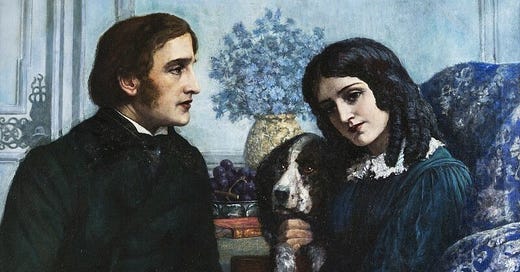The courtship, love, and marriage of Robert and Elizabeth Browning form one of the most heart-warming stories of the Victorian literary age. She and her siblings had been shut out of most dealings with the world by a selfish, devoted, and tyrannical father. When she met Robert Browning, a passionate soul if there ever was one, and morally as upright a…
Keep reading with a 7-day free trial
Subscribe to Word & Song by Anthony Esolen to keep reading this post and get 7 days of free access to the full post archives.



